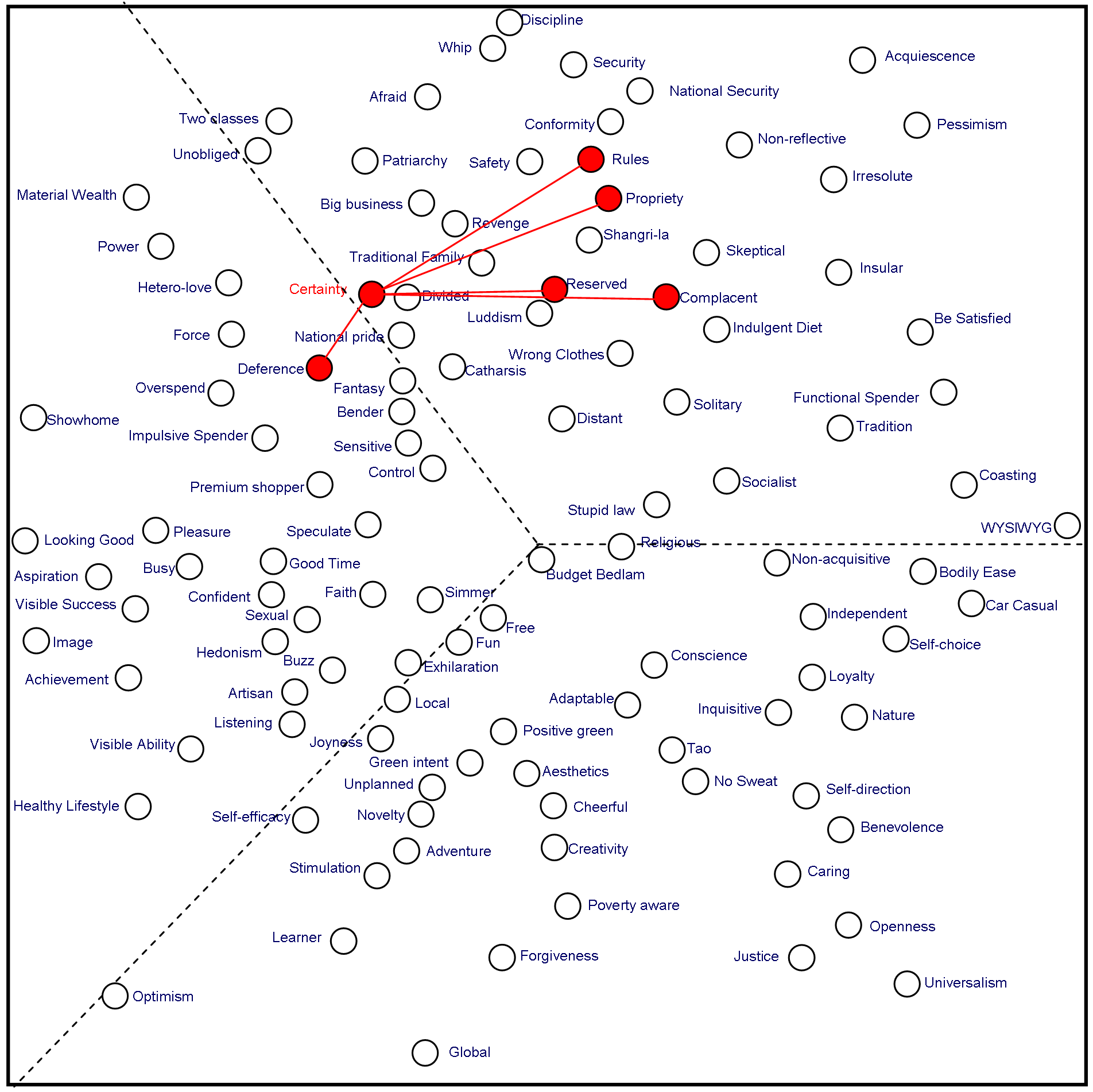

CERTAINTY
 |
I need clear cut rules to live by. I like things to be certain and predictable.
A desire for certainty is something that most people would naturally associate with the older generations and, perhaps, more women than men. In fact, that’s only marginally true.
Certainty espousers go a step beyond respecting rules; they elevate them to life principles – solid definitions of right and wrong – morals, if you will. These rules are not self-made. Rather they come from (other) people “in authority” – people who they accept as having some legitimacy in dictating right and wrong.
These authority figures may be those we might think of conventionally – national and local government, the police, and so on. They might also be the perceived leaders of some other peer group - for example, the committee of the golf club, the leader of a local gang, the boss at work, or maybe even “Her indoors” or “Himself”.
Whoever is the authority figure, it is of paramount importance to the Certainty espouser that they are never seen (caught?) doing anything “wrong”. To make sure of that, they will always do their best to behave properly. That means doing what they’re told. They will tend to stick to the rules even when nobody is watching. Well, you never know - “walls have ears” and there are “eyes everywhere”.
Often these people are quite quiet and reserved. Certainty about what’s right and wrong gives them the confidence to venture outside their shell a bit. Usually they are really only comfortable with people they already know – which means that they can find it slow going to make new friends and acquaintances. On their side, in that respect, is that they themselves can be completely undemanding. As long as they’re comfortable and contented, they aren’t driven to “break out” or get themselves into an argument.
Certainty, above all, means freedom from and avoidance of confusion – the confusion of billions of voices shouting all at once, each with a different idea. Social media, such as Facebook, do not offer that freedom unless the context is strictly limited – for example, just family members or work colleagues.
The real home of Certainty is amongst those values orientations at the boundary between Settlers and Prospectors. In that values territory, the authority of “the group” still holds sway but there is a subconscious, nagging sense that it’s all about to fall apart. The person is starting to feel a need to transcend their roots, yet measures themself, still, against those roots. Holding on to some – any - set of rules gives the opportunity to deny and deflect this internal personal conflict.
Actually “needing” certainty is quite different from “having” certainty. The former is a sign of internal, undesired and uncomfortable internal conflict. The latter is a sign either of having never faced the struggle or of having found its resolution to a sufficient extent.
Using CertaintyDemographic Skews: 1) Over-indexed: Over 65. 2) Under-indexed: None. Certainty espousers also espouse other Attributes. The top five most highly correlated Attributes of Certainty espousers are, in order of the strength of relationship: 1) Deference In total those who espouse Certainty also over-index significantly on 30 other Attributes. |
|
If "Certainty" (or the associated attributes) are important to you and you would like to delve more deeply, contact us at mail@cultdyn.co.uk
